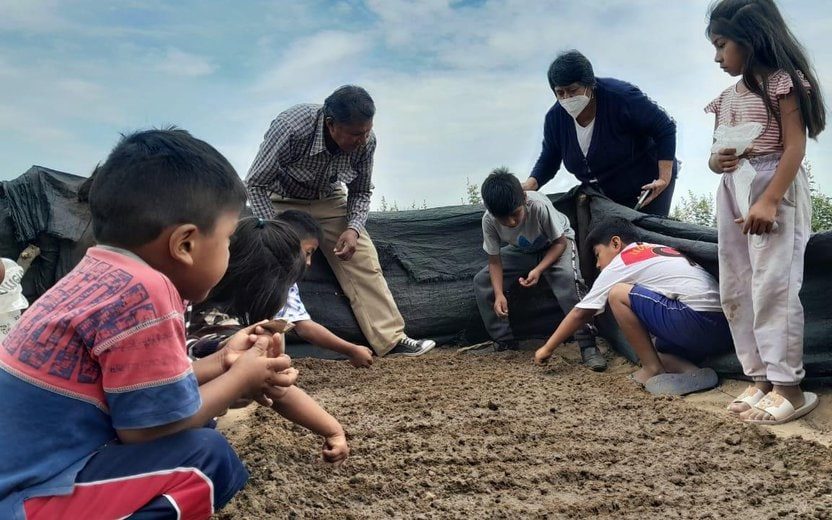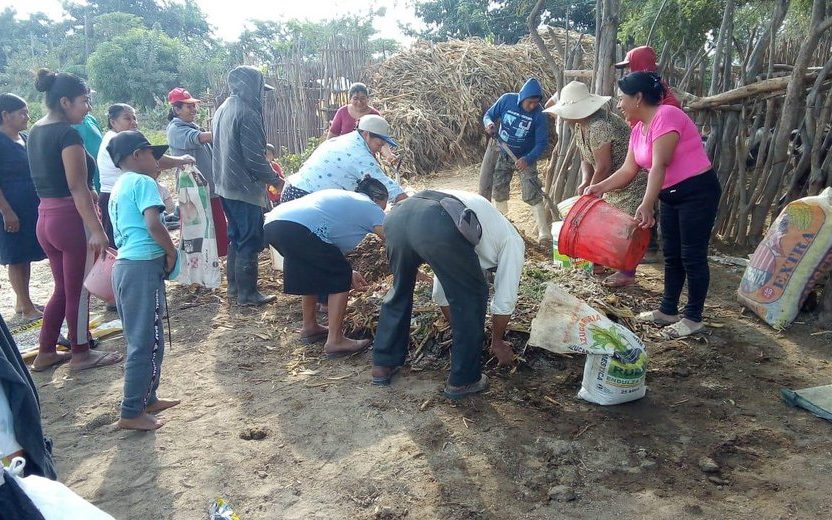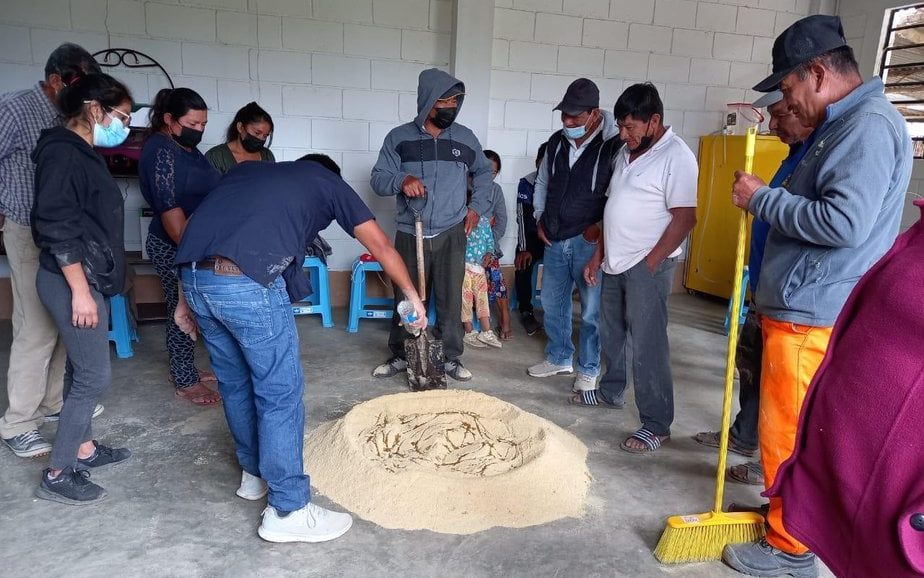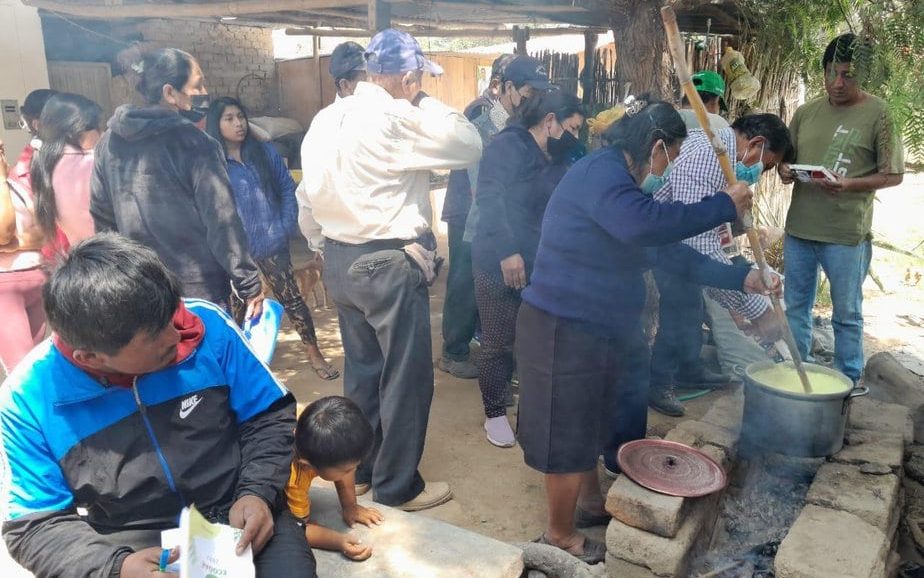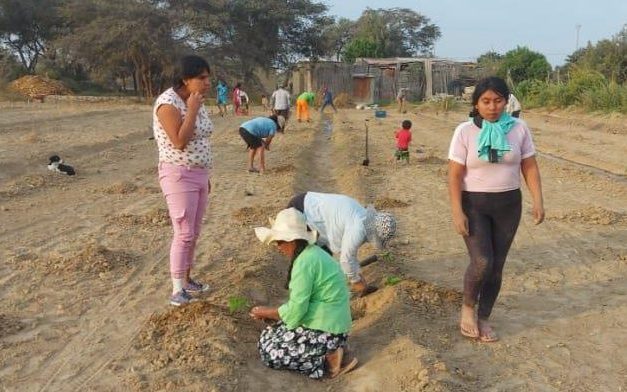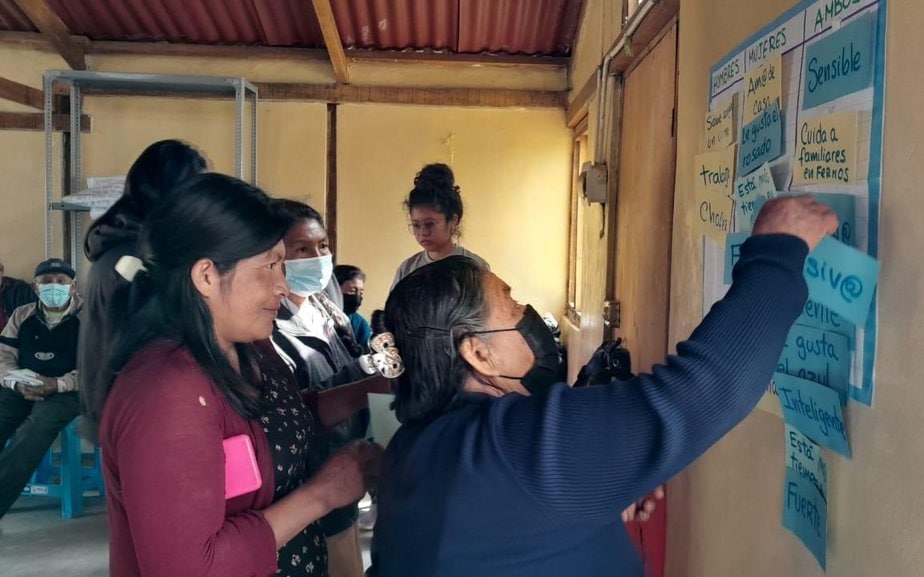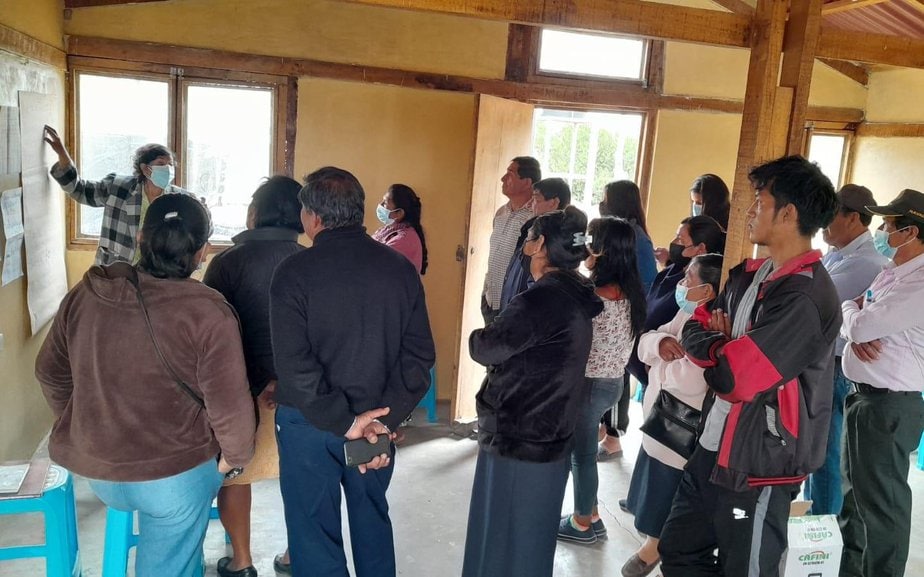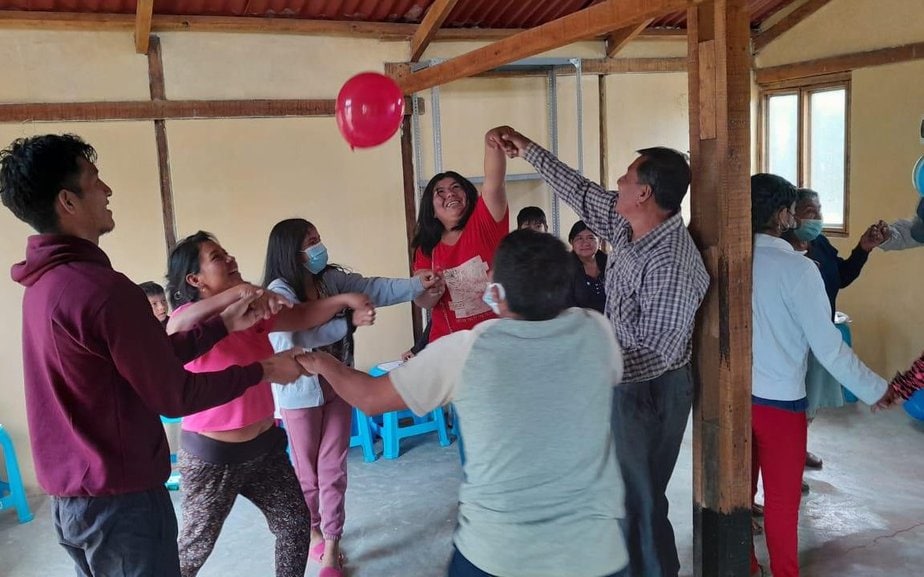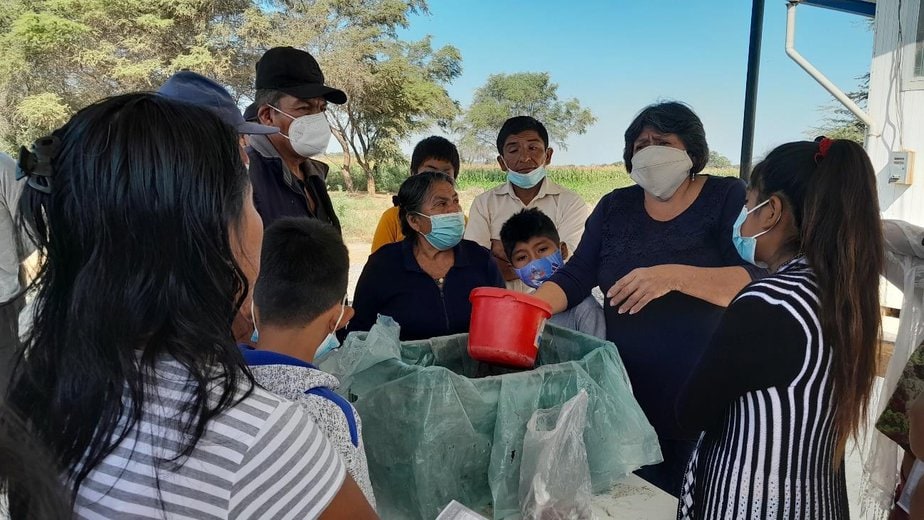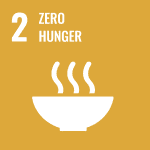
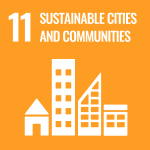
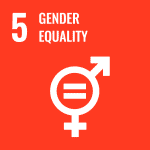
The families of the rural community of San Isidro have come a long way since 2017, when they fled their homes because of floods that damaged or destroyed their houses, lands, crops, animals, irrigation system, and water supply. Today, with support from Heart-Links partner Centro Esperanza, they grow and sell organic vegetables, raise free-run chickens and produce organic eggs for themselves and the market, raise sheep and have planted an orchard that will produce passion fruit and papaya for market.
But it hasn’t been easy. In 2022, fertilizer, food and transportation prices skyrocketed, making it harder than ever to buy food or travel for work. Late in the year, countrywide protests interrupted supply chains, further undermining food security. Despite these challenges, the families of San Isidro made great strides:
- The community received a donation of sheep from another institution which was impressed by the success of the project sponsored by Heart-Links.
- A focus in 2022 was to get youth involved. Community youth learned about organic gardening, caring for sheep, communications and gender equality.
- The community successfully negotiated with municipal authorities for a place in town to sell their produce.
- They also arranged with the nearby Túcume Museum to sell their organic produce on a monthly basis at the site.
- A woman was elected president of San Isidro’s community association.
- One family both produces and sells organic fertilizer.
- The families used some of their earnings to donate educational games to the local school. They wanted to show solidarity as well as the importance of play in learning.
- More community members want to join the association.
- Inspired by San Isidro, a neighbouring community wants to start a similar project.
And there is so much more. But sometimes pictures tell the story better. These photos represent the first six months of this project in 2022:
